Nadia
$200.00
Age: 13 Months
Sex: Female
Morph: Hypo Zero
Preferred Diet: Veggies and Crickets
Description
all white bearded dragon temperament
all white bearded dragon make excellent reptile pets. With one of the best temperaments of all lizards, they are generally docile, and many seem to actually enjoy being handled. They are diurnal (up during the day and sleep at night), which means you can watch them during the day. They will watch your every move, sometimes pacing their tank as if begging for attention and to be fed (they love to eat!). Their spikes make them look like dinosaurs, however, they are usually quite tame and easy to handle. They can even make good pets for children, if properly supervised, and their relatively small size makes them very manageable. Bearded dragons vary in their personality. Some are more personable and responsive than others. Some show more signs of intelligence than others.
all white bearded dragon housing
Bearded dragons are often kept in a glass aquarium tank with a screen top. Other housing that is sometimes used are custom wood cages (which can be hard to clean), cages made from molded plastic, which can be pricey but they are lightweight and easy to clean. You can start a baby for the first 4 to 6 months in a 30-inch long enclosure. Keeping a baby in a larger area can sometimes cause problems as the baby may have a hard time finding his food, water, basking sites and shelters. As the baby grows a larger area will need to be provided. The smallest enclosure for one or two adult bearded dragons (Pogona) is either a 4-foot x 2-foot tank or a 6-foot x 18-inch tank. A single adult should not be kept in a tank smaller than a standard 55-gallon (48-inch x13-inch) tank. Anything smaller will restrict activity in a way that is not healthy for the beardie. Wood chip bedding is not always recommended as the crickets will find places to hide, making it difficult for the beardie to find its food. These hiding crickets will then come out during the night hours while your beardie is trying to sleep, harass him and stress him out. Sand or fine gravel is a good alternative. Sand and fine gravel are not only their natural desert bedding but are also easy to keep clean. Poop can be scooped out in clumps. A layer between 2 and 3 inches is recommended. Some also like to use newspaper or even rabbit pellets or alfalfa pellets, but you must watch so that it doesn’t mold if it gets wet. Cage carpet can also be used. It can be taken out and washed over and over. If you choose to use cage carpet be sure there are not loose ends that can be ingested. Bearded dragons need a source of heat. Some choose to use a heat pad, however beardies like to bask in the sun and a heat lamp provides a good replica of the sun. If you place a rock under the lamp, the lamp will also heat the rock which will also warm up the dragon’s underside. A basking light should be provided at one end of the cage. Bearded dragons are primarily desert dwellers, however, they do spend the hottest part of the days in relatively cool areas; as with all desert animals, too much heat can be just as dangerous as too little. During the day the temperature should range from 76° F (24° C) on the cool side to 86° F (30° C) on the warm side, with a basking area ranging from 90-100° F (32-37.7° C). Nighttime temperatures should drop no lower than the low to mid 70s (21° C) on the cool side. It is also recommended that you provide a UV light to help them absorb calcium. UV light activates the synthesis of vitamin D3, which is a prerequisite for the absorption of calcium and other minerals from the diet. Remember that glass filters out virtually ALL of the beneficial UV rays needed by reptiles for vitamin D3 conversion. Always place your fixtures above the tank, preferably on the screen, to allow the light to pass with no filtering! Keep all lighting and fixtures out of the tank to prevent your dragon coming into contact with the hot fixture and possibly causing severe burns. Your lighting cycle should run between 12-14 hours of light per day, and the use of a timer is recommended. If you choose to put your beardie’s cage near a window for a natural source of sunlight, be sure to carefully monitor the temperature!

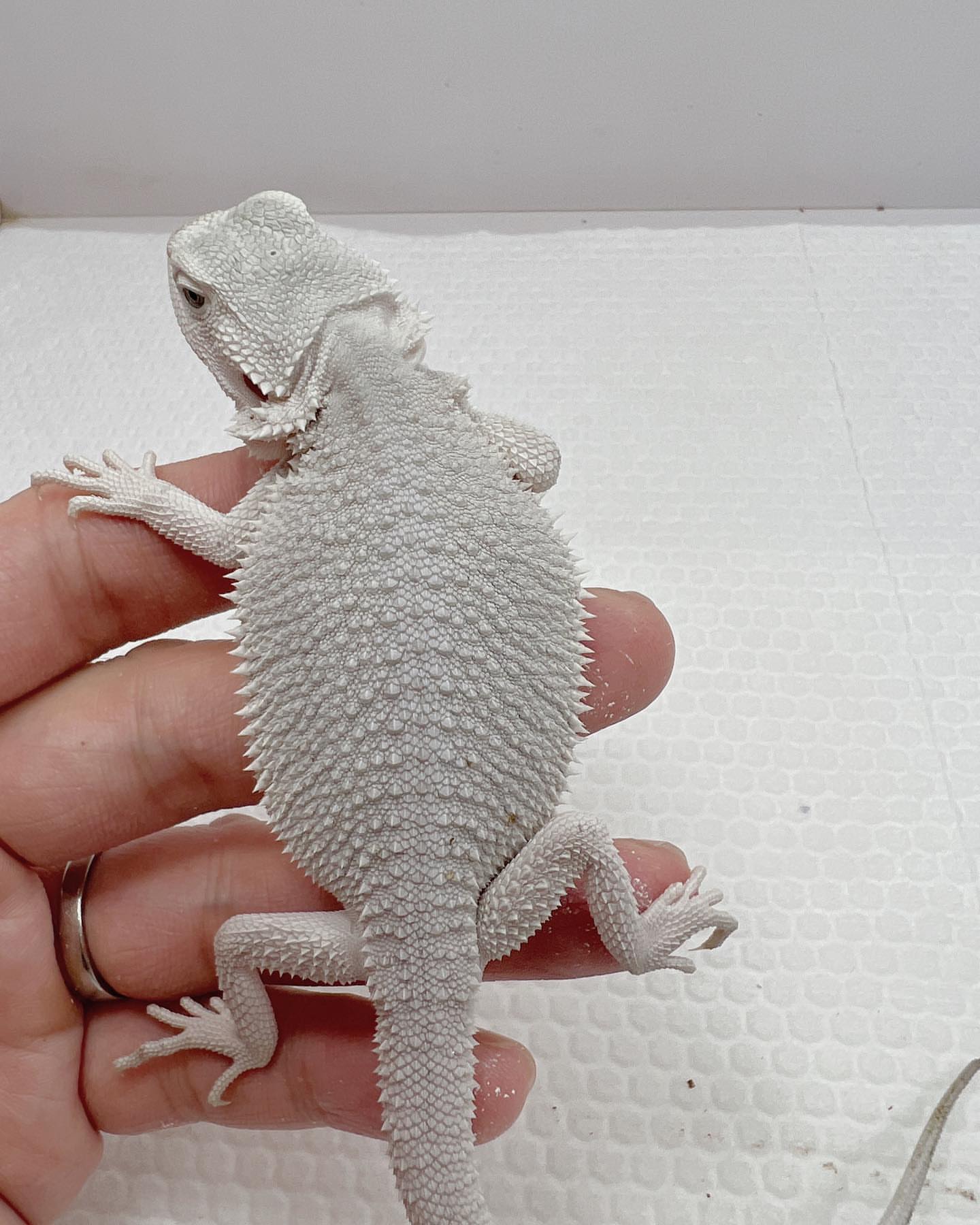
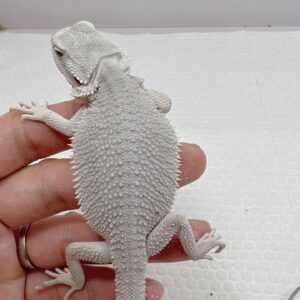
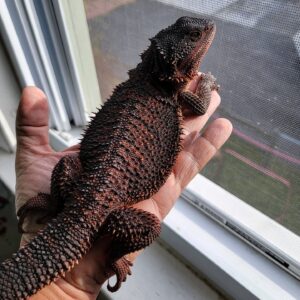
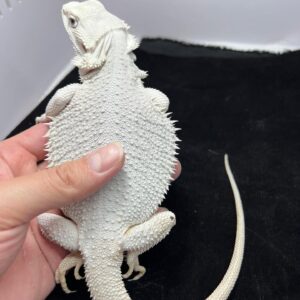
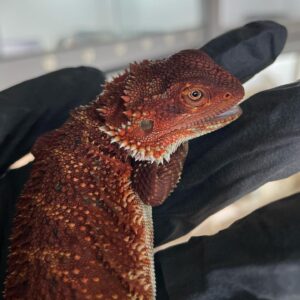
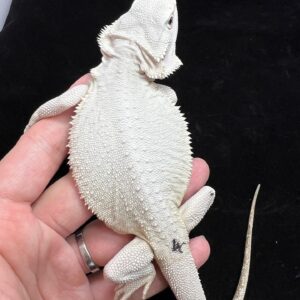
Reviews
There are no reviews yet.